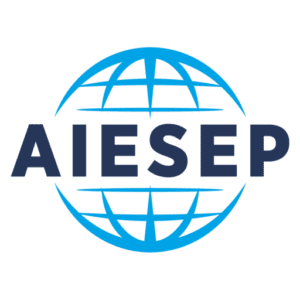Body Politics in and Through Movement: Reimagining Education, Sport, and Community
Professor Dawn Penney, Dr Valeria Varea, Dr Eibhlish O’Hara and Dr David Aldous
Sport, Health and Education Research Community (SHEdRC), School of Education, Edith Cowan University
Researchers and educators have long explored body politics, particularly within Physical Education (PE), Health Education, Initial Teacher Education (ITE), Outdoor Education (OE), and sports. While many discussions are not new, global social, cultural, and environmental shifts have once more highlighted their relevance in addressing equity, inclusivity, and sustainability issues.
Our everyday movements embody such issues. These are manifested in various spaces, including sports fields, gyms, outdoor activities and H/PETE programs. A renewed focus on how body politics are developed in and through movement invites critical reflection on how bodies are judged, how movement is taught, and how identities are shaped. Several key questions arise: How are bodies regulated in PE and sport? What constitutes belonging in movement spaces? How do we challenge dominant narratives to imagine more equitable futures? We focus on three primary contexts to begin exploring these and similar questions: Outdoor Education, PE, and Informal Sport.
Physical Education is often a prominent arena for body politics in and through movement. Despite past reforms to value diverse movements, many curricula emphasise traditional sports and favor”able” bodies. Researchers like Shaun Wilkinson highlight how grouping practices based on gender or ability perpetuate marginalisation. There is a pressing need to continue to create visions of PE that emphasise belonging, ensuring all students feel empowered to participate regardless of ability, gender, size, or background. Shifting towards generative body politics in Physical Education can help celebrate bodily diversity rather than controlling it. Research beyond formal education, especially in informal sports, presents opportunities for vibrant body politics by moving beyond rigid governance structures towards more inclusive and playful forms of movement.
The value ascribed to different bodies also varies significantly across school and community contexts. Dr Valeria Varea and colleagues draw attention towards how, in Swedish schools, for instance, research shows that student migrants experience ‘Westoxification’—a process where their home countries’ values and knowledge about health are often discarded. Furthermore, her ongoing research on Orthorexia Athletica in Western Australia reveals that many everyday exercisers feel pressure to conform to an unhealthy standard of health, with few being satisfied with their bodies. Research by Valeria and colleagues also indicates how body-critical practices can unintentionally shame and affect athletes in elite sports, showcasing the nuanced influence coaches can have on body perception.
In recent work, Dr David Aldous and Professor Dawn Penney have illustrated how OE often reinforces restrictive and often exclusive identities. In response, they call for the co-design of OE that broadens the scope of outdoor learning to support a more democratic engagement, cultivating lifelong/wide participants in physical activities and promoting vibrant communities.
In Physical Education Teacher Education (PETE), the body serves as both a subject of learning and a conduit for understanding knowledge. Students like Vicky Evans illustrate how facilitators translate policy and pedagogy into practice. As a new ITE program develops at ECU, crucial questions arise: What movement forms are prioritised? How are future educators supported to deliver movement instruction with confidence and critical thought? Ensuring that movement is treated as pedagogy, rather than just content, is essential for effective learning.
Ultimately, we seek to generate reflection and discussions surrounding future directions for body politics in movement. The research community encourages interdisciplinary, creative, and community-led efforts to redefine body politics within education and sport. This involves collaborating closely with various stakeholders, creating a conversation around inclusive and sustainable movement practices. Events like our AIESEP specialist seminar in December 2025, will provide a forum for dialogue, promoting visions for movement futures that emphasise citizenship, connection, and care. Let’s move forward together—with purpose, compassion, and curiosity.
Join the Conversation
How do you experience body politics in your context?
What movement forms do you feel included—or excluded—from?
What does your practice say about the bodies you value?



